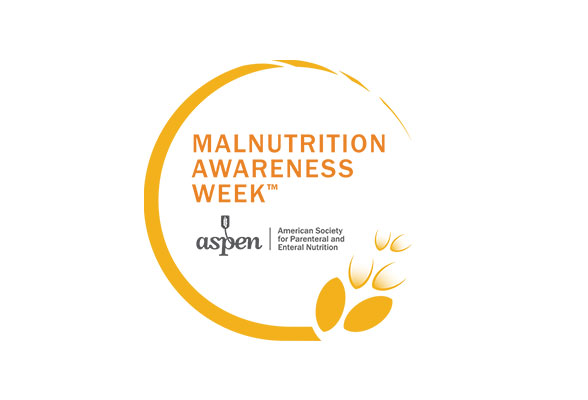As countries worldwide grapple with the COVID-19 pandemic, older adults remain disproportionately affected. Not only are they at an increased risk of infection, but they're also at a higher risk of malnutrition -- especially those 85 years and older.
Malnutrition and COVID-19: What You Need To Know
Posted by Alexandria Hadley, MS, RD, LD on Nov 4, 2020 11:00:00 AM
Topics: Home Delivered Meals, Nutrition Care, Malnutrition, Older Adults
Malnutrition Awareness Week - October 5-9
Posted by Alexandria Hadley, MS, RD, LD on Oct 7, 2020 10:45:00 AM
Malnutrition is a leading cause of hospital readmissions for older adults. And, it affects those from all ethnic communities. Although adults 85 years and older are at a greater risk, malnutrition can affect people of all ages.
Topics: Malnutrition in Elderly, Home Delivered Meals, Nutrition Care, Malnutrition
Executive Chef Jakob Fatica joined GA Foods in 2019. Chef "Jake"' has over 20 years of professional culinary arts experience. He is experienced in high-volume catering, and has worked in the healthcare, higher education, and hospitality sectors. Prior to joining GA Foods, he provided culinary direction at The Johns Hopkins Hospital System in Baltimore.
Topics: Registered Dietitians, Nutrition Care, Healthy Meals for Seniors, Special Diets, Baby Boomers
Hospitals and healthcare systems are addressing the Social Determinants of Health for their patients throughout the continuum of care. Studies show that social, economic, and environmental factors are contributing factors to patient health.
Topics: Home Delivered Meals, Medicare, Nutrition Care, Malnutrition, Post Discharge, Managing At-Risk Patients, aging in place, Social Determinants of Health
The COVID-19 pandemic is causing anxiety and worry to millions around the world. Caregivers and those living with older adults may be dealing with those who are experiencing extra worry and stress.
Topics: Home Delivered Meals, Caregivers, Nutrition Care, Senior Nutrition, Dehydration, Older Adults, emergency meals
Myth Busters: Older Adults DO Like Flavorful Foods!
Posted by Alexandria Hadley, MS, RD, LD on Aug 15, 2019 12:54:00 PM
Changes in eyesight. Hearing loss. Bone deficiency. Some conditions are inevitable as we age – especially without proper care and attention. But there are many misconceptions and stereotypes surrounding aging that make the entire process difficult and even a little confusing.
Topics: Nutrition Care, Affordable, Healthy Foods, Healthy Meals for Seniors, Baby Boomers
Myth Busters: Older Adults DO Prefer to Stay in Their Own Homes!
Posted by Mary O'Hara on Jul 25, 2019 11:01:00 AM
People may think just because their parents or a family member are older, that they want to sell their homes and move to a senior facility. However, for many seniors, that's not the case. In fact, according to a recent study by AARP, more than 90 percent of older adults prefer to stay in their homes. The majority of older Americans want to stay in their homes because they are most comfortable with what is familiar.
Topics: Home Delivered Meals, Nutrition Care, Care Managers, Aging Well
Adopting a positive attitude can go far in dealing with the changes associated with aging. In fact, according to Kaiser Health News, those who have a positive outlook on aging live 7.5 years longer. Studies show that older adults who hold negative stereotypes about aging tend to walk more slowly, experience memory problems, and recover less fully from a fall or fracture.
Topics: Home Delivered Meals, Senior Health, Healthcare Cost Reduction, Medicare, Nutrition Care, Healthy Meals for Seniors, aging in place
According to Kaiser Health News, 28 percent of patients (many being older adults) who are offered home health care services when they are discharged from the hospital, refuse the services available, which could lead to delayed recoveries, and reduced independence. Studies indicate that those who refuse post-discharge services may have higher rates of readmission to the hospital and a lower quality of life.
Topics: Home Delivered Meals, Medicare, Nutrition Care, Malnutrition, Post Discharge, Aging Well
According to The National Aging in Place Council (NAIPC), more than 90 percent of older adults prefer to stay in their homes rather than move to a senior facility. One of the challenges you face as a case manager is helping seniors to age in place. People want to stay in their homes because they are most comfortable with what is familiar.
Topics: Home Delivered Meals, Nutrition Care, Care Managers, Aging Well, Senior Nutrition















